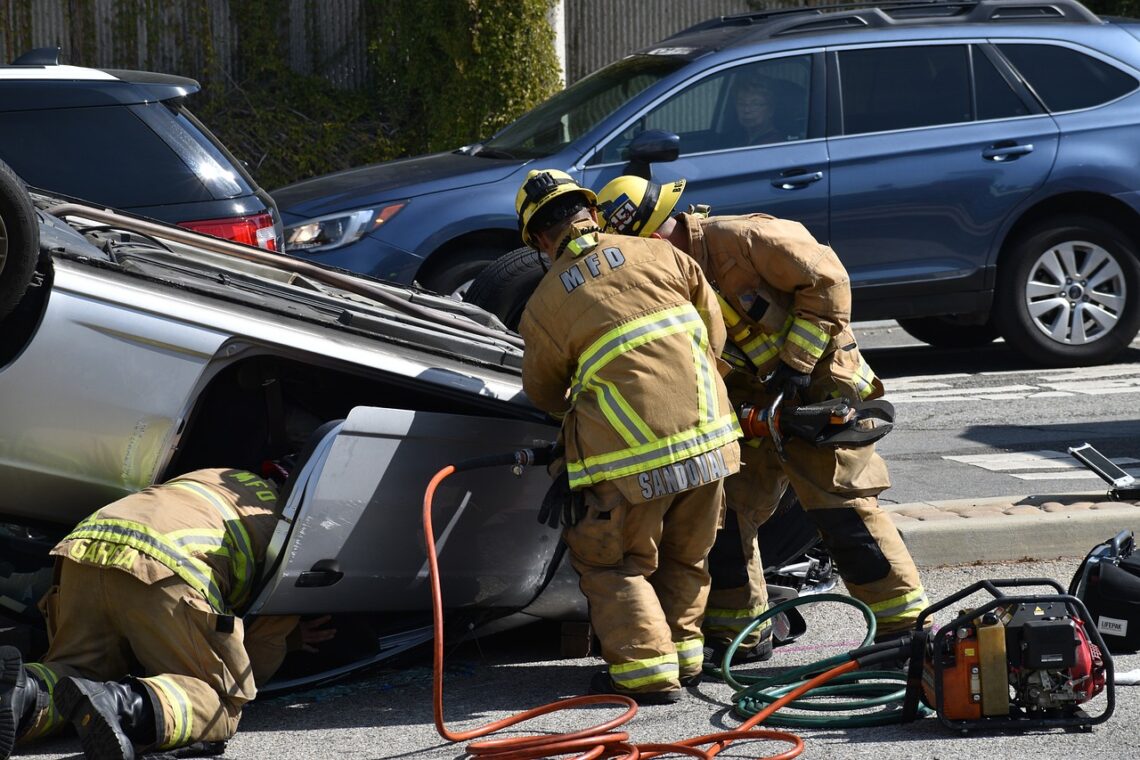Car accidents can be overwhelming and chaotic events, often leading to confusion and frustration, especially when they involve out-of-state drivers. In a place like Biloxi, Mississippi, where both locals and visitors frequent the coastal roads, accidents involving drivers from other states are unfortunately common.
The complexity of these incidents increases when it comes to determining liability and handling insurance claims, as different states have varying traffic laws and insurance regulations. Whether you’re a resident of Biloxi or a tourist, navigating the legal aftermath of a car accident can be daunting. That’s where experienced car accident attorneys can make a significant difference. They are well-versed in the intricacies of dealing with out-of-state drivers and can help you manage the challenges that arise from differing laws and insurance practices.
In Biloxi, where tourism is a major industry, accidents involving non-local drivers are part of the landscape. As such, understanding how to handle these situations, from collecting evidence to communicating with insurance companies, is crucial. This article will guide you through the necessary steps to take after a car accident involving an out-of-state driver, ensuring you are equipped to deal with the complexities of the process and seek the compensation you deserve.
Exploring Variances in Jurisdictions
Different states have their own traffic rules that you should be aware of in case something happens while you’re driving in a different state from your own and you get into an accident there involving drivers from other states. It can make things more complicated legally. Make sure you know the traffic laws in the area to handle these situations well and understand how different jurisdictions may come into play so that everyone involved can deal with the situation wisely and informedly.
Factors to Keep in Mind When Dealing with Insurance
Insurance coverage differs across states, which can make processing claims a bit tricky at times. It’s important to understand what is covered by each party to avoid any holdups. Many states adhere to “no-fault” rules, meaning drivers can file claims with their insurance providers regardless of fault. On the other hand, some states work on an “at fault” basis where the at-fault driver’s insurance takes care of the damages. Knowing the right procedures can help in setting expectations and making sure conversations with insurance companies go smoothly.
Recording the Setting
Accurate record-keeping is crucial in any accident situation. It is especially important to gather evidence when drivers from another state are a part of the incident. Take pictures of the vehicles’ location and damages, and include shots of the surrounding areas, too. If possible, get contact details from witnesses to back up any statements. These actions offer documentation that aids insurance companies and law enforcement agencies in their inquiries.
Involving the Police
Reaching out to the police right away helps ensure an official report of the accident incident is created, making it easier for everyone involved to manage and understand the aftermath. The officers are knowledgeable about the laws and rules in the area and can offer valuable advice. Having this report is vital for interactions with insurance companies and legal matters. It’s important to document information like when and where the accident occurred and who was present. Working together with law enforcement authorities can improve comprehension and help resolve issues.
In Need of Help
Ensuring the well-being and safety of individuals should always be the primary concern after an incident occurs, regardless of its severity. Prompt medical assessment is crucial for injuries as it aids in documenting the necessary evidence for insurance claims or legal proceedings. Seeking care not only prioritizes health but also bolsters any future claims tied to the incident.
Determine Your Needs
For businesses looking to outsource technical projects, some platforms specialize in connecting companies with freelancers who provide IT services, offering expertise in software development, system maintenance, and cybersecurity to meet diverse business requirements
Engaging in Dialogue with Stakeholders
Building communication with everyone involved is essential for resolving disagreements, approaching each discussion with patience and empathy, steering clear of blame games, and instead concentrating on facts and potential solutions. Whenever there is a flow of communication, it nurtures collaboration and paves the way for friendly resolutions that avoid prolonged disputes.
Seeking Advice from Experts
It is a good idea to consult with a lawyer when dealing with matters that involve drivers from another state who are involved in a legal situation on the roadways. There are lawyers who focus specifically on traffic laws and can provide information about the variations in jurisdiction and legal rights. They can assist in discussions with insurance companies to guarantee satisfactory agreements. Legal experts bring their wealth of knowledge to the table and help make the resolution process smoother in these situations.
Preventive Actions
Accidents are sometimes inevitable, but taking precautions can greatly reduce the risks involved. A handy tip is to get acquainted with the traffic rules of the area you’re visiting. Make sure your vehicle is in good shape. Practicing defensive driving skills can also help decrease the probability of accidents happening. Being alert and ready can lead to smoother travel overall and lessen the impact of any mishaps that may occur.
In Summary
Dealing with car accidents that involve drivers from other states requires an understanding of all the different factors to consider – from legal jurisdiction variations to insurance aspects that need careful analysis and attention to detail. Properly documenting the incident and maintaining communication are steps in handling such cases effectively. Seeking advice from legal experts can significantly help navigate the complexities involved. Putting safety first and fostering cooperation while making informed decisions are essential steps for achieving a more seamless outcome for everyone affected by the situation.
Read more lifestyle articles at ClichéMag.com
Images provided by Deposit Photos, BingAI, Adobe Stock, Unsplash, Pexels, Pixabay & Creative Commons





